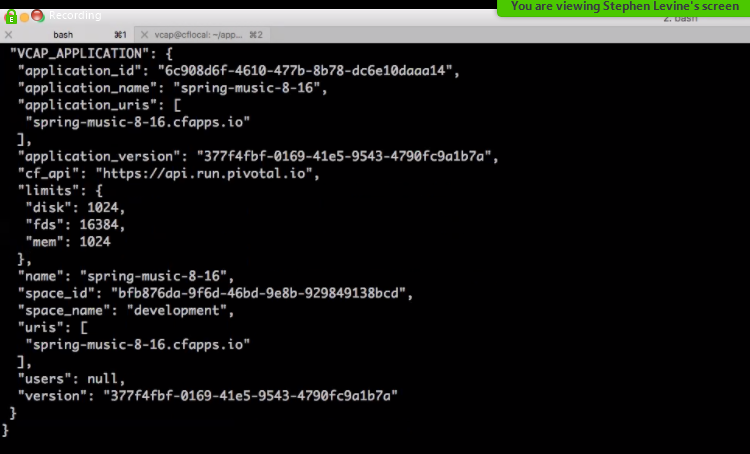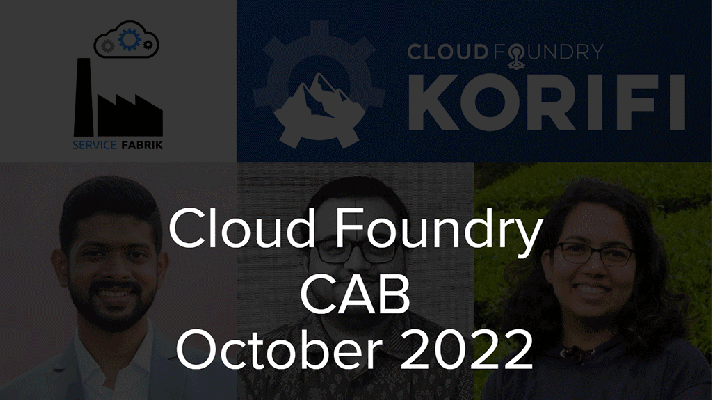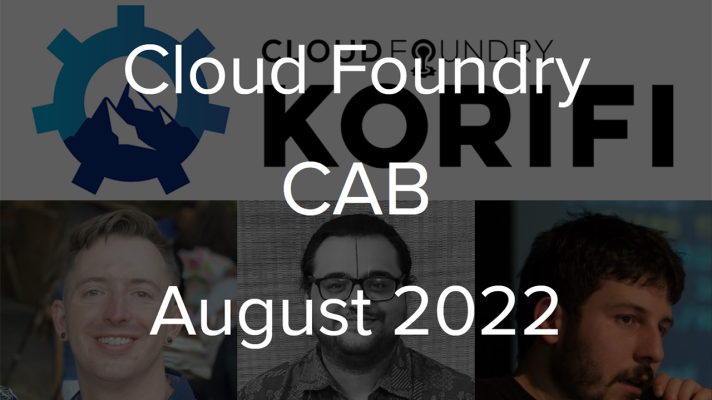Cloud Foundry Advisory Board Meeting, Aug 2017: Introducing CF Local
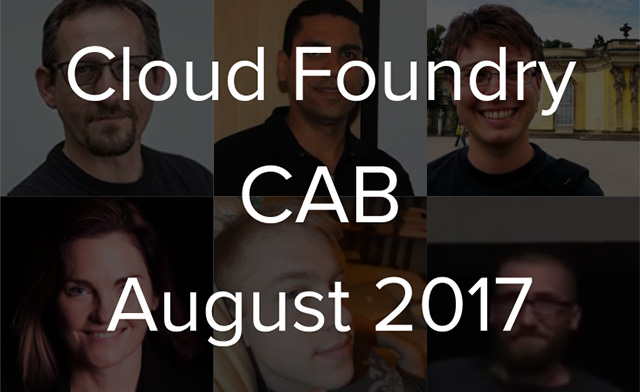
Extending the platform
“We want members of the Cloud Foundry community to always feel they can always extend the platform.” This is according to IBM’s Michael Maximilien (aka Dr. Max), who again led the monthly Cloud Foundry Community Advisory Board (CAB) call on Wednesday, August 16.
The new cf-extensions GitHub bot was on this call’s agenda, as was a significant upgrade report from the BOSH team. There were also reports from the BOSH Backup Restore (BBR) and Runtime PMC teams, and reminders from the Cloud Foundry Foundation of an ongoing community survey and the upcoming European summit in Switzerland. Pivotal’s Stephen Levine demoed a new CLI plugin called CF Local to complete this month’s call.
The CF Local CLI plugin
Stephen Levine described CF Local as “a Cloud Foundry CLI plugin that acts like a Docker translation layer,” while noting its primary capability to stage apps (and their attendant services) locally. He was lauded by several people on the call, who noted its potential to save developers copious amounts of time by enabling them to work on their local machines.
Within CF Local, Stephen said, “all the remote services will become available for this local application.” His demo showed the setup for developing a web app in the Java programming language with Struts, Spring, and Hibernate.
Sharing his screen, he demoed a Spring Music instance, noting “there’s a Java buildpack running in there and an SSH tunnel.”
The key point, he noted, is “I can use the local tunnel instead of the remote one. I want everything to point back to the local tunnel, and so I have a remote app talking to a local app.” He said it uses the traditional v2 API, so should work with IBM Bluemix and other popular cloud integrations. “It also acts as a translation layer with Kubernetes,” he noted.
 CF Local demo (Source)
CF Local demo (Source)Stephen said he has submitted CF Local to the CF-Extension community, so it will thus be moving through the incubation process.
A new CF-Extensions bot
Dr. Max discussed a new bot that can control projects “to see which are on track and which are not on track.” The bot runs a couple of times a day, can move projects to track, and generates new docs each time it runs.
He urged community members to start tagging themselves with the topic “cf-extensions” so they can add themselves and their projects to the process. He said he is working on getting the ability to produce high-level views, such as “all the incubating projects versus the proposed projects,” as well as more detailed views that would show things, such as projects on a pair commit model, distributed commit model, etc.
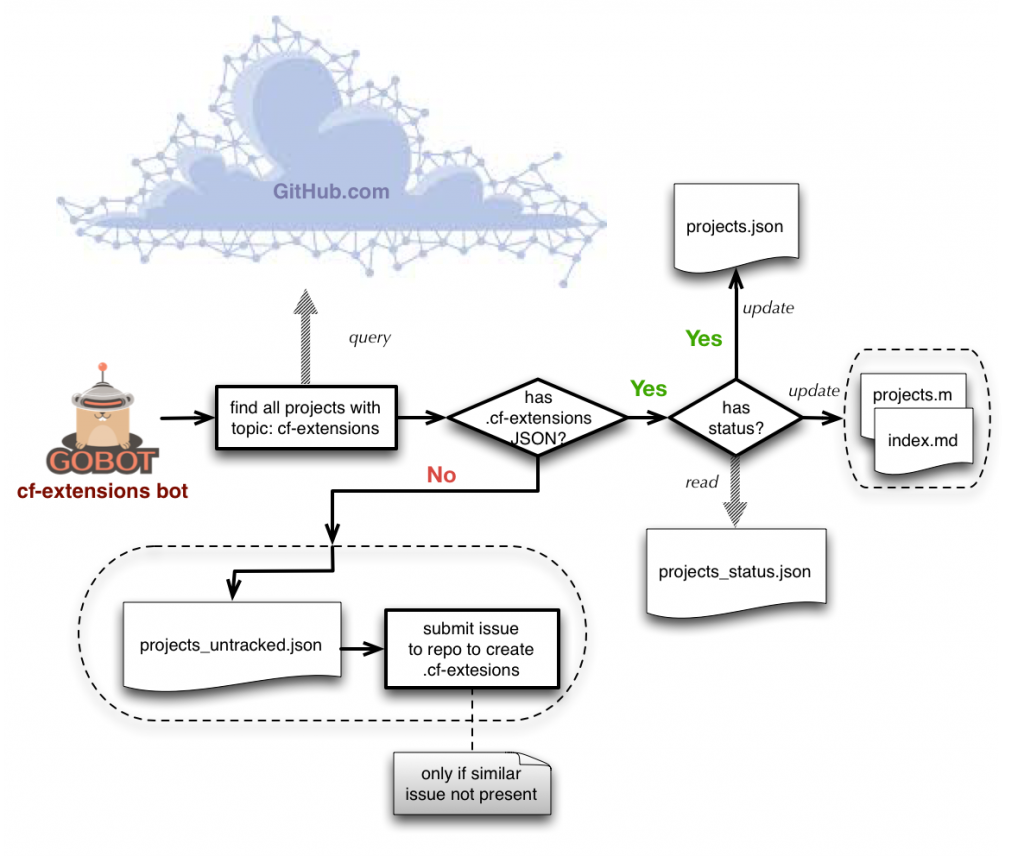 The cf-extensions bot workflow (Image credit)
The cf-extensions bot workflow (Image credit)He also noted that “this bot project itself is a project,” so he will develop notes soon that discuss it in detail. Yesterday, Dr. Max also delivered a wonderful blog post describing the bot.
BOSH improvements
Pivotal’s Dmitriy Kalinin gave the BOSH report. He said version v263 has now shipped, with release notes to be filled in soon.
Dimitriy reported that one long-awaited DNS feature in the new version is the ability to point to an entire link and cover all the instances, as opposed to just a single entry for individual instances. “The next step will be to automatically inject domain names into certificates generated by CredHub,” he said. “Then the last remaining steps for DNS to be consumable fully by Cloud Foundry.” He said the team continues to work on the BOSH Director running co-located errands, something that also remains to be documented.
“With v263, you should be able to place an errand onto any existing service life-cycle instance and run the errand without the cost of spinning up and down a machine. This functionality is meant to support errands triggering some kind of API call or debug info to log files, or promote to master from slave, etc.” —Dimitriy Kalinin, Pivotal
He added that this latter feature should help to open some new use cases that have been impossible in the past. Upcoming features include internal hot swappable capability, allowing developers to “quickly migrate from one machine to another while doing a stemcell update or a recreate. Having a second VM—so that the downtime is minimized—also should speed up the deploys because can create bulk VMs up front and do a deletion later.”
Brief BBR update
Pivotal’s Therese Stowell told callers that the BOSH Backup and Restore project (BBR), which we reported on last month, was put to a successful vote by the CF-Extensions community and is now incubating. There were huzzahs all around. One focus area as things continue to move forward, she said, is “to minimize downtime with things like read-only mode.”
Runtime PMC report
Pivotal’s Eric Malm updated attendees on Runtime PMC activities. He said version 3 of the Cloud Controller API (CAPI) is now in general availability, and the CLI team “is starting to build new/convert commands on top of this API.”
Meanwhile, the Diego team is working with CAPI rolling updates, “to take the burden off of Cloud Controller for managing instance by instance details,” he said “The team is also approaching completion of multi-buildpack support.” Eric also noted that buildpacks are “mostly” converted to work with one another, with the Java buildpack remaining to be converted.
An ongoing survey and the upcoming summit
Chip Childers from the CF Foundation reminded attendees of the ongoing survey—which also offers prizes—that will close on August 23. The survey asks questions about companies using Cloud Foundry, which version they’re using, and why they’re using it. The results should provide some highly significant new information and help the foundation members to determine the future direction of Cloud Foundry.
Chip also updated everyone on the upcoming Cloud Foundry Europe Summit in Basel, scheduled for October 11–12. The registration is open, and numerous speakers and sessions have been announced.
(At the upcoming summit, we are going to deliver a lightning talk on full-stack Cloud Foundry monitoring. Anticipating the event, you can also join a webinar on how to efficiently collect metrics and logs in Cloud Foundry or this one on multi-datacenter Cloud Foundry deployments.)
To learn more about what the community has achieved through April–July in terms of the ecosystem projects, you can also check out a detailed report submitted by Chip.
Next time!
The next CAB call is scheduled for Wednesday, September 20. The calls begin at 8 a.m. Pacific Time and end promptly within one hour. Anyone interested in attending the call can keep up with details about it by joining the Cloud Foundry’s CAB Slack channel.





